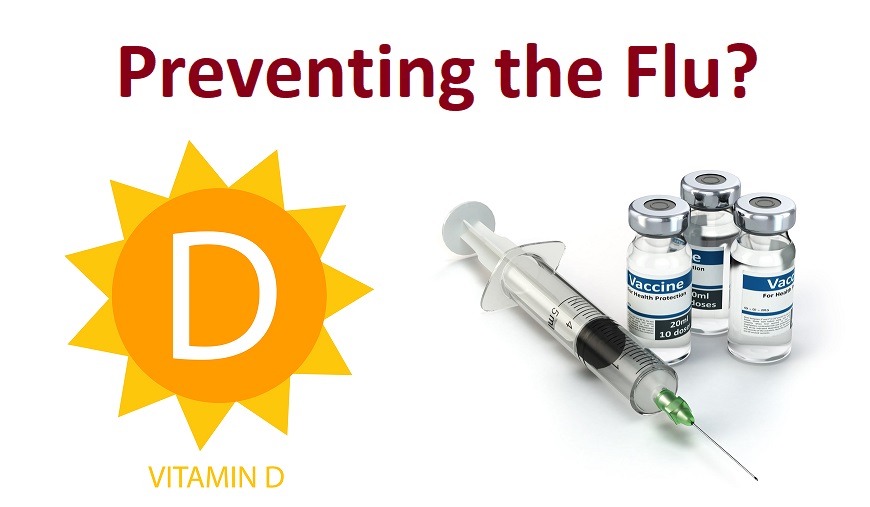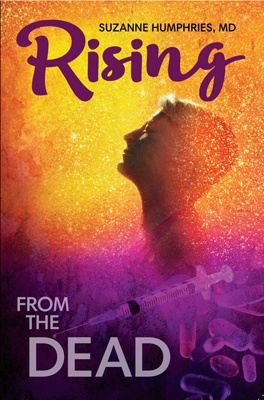
by Brian Shilhavy
Editor, Health Impact News
Numerous peer-reviewed published studies have linked an increase in Vitamin D uptake with a decrease in influenza infection during the flu seasons. The logic is easy to understand: winter brings shorter days with less sunlight, when influenza is most prevalent, while influenza outbreaks are rare during the summer months with increased exposure to sunlight, the most common source of Vitamin D.
One of those studies, a meta-study that looked at 25 separate studies involving over 11,000 people, was published in the British Medical Journal last year (2017), and published by Dr. Mercola. (See: Study: Vitamin D Is More Effective Than Flu Vaccine.)
However, other studies have also been published which seem contradictory, showing little to no association of uptake in Vitamin D with a decrease in flu infections. These studies have, obviously, been highlighted more by the corporate-sponsored “mainstream” media in their efforts to market the annual flu vaccine.
A study published from researchers in Japan may have unraveled this seeming paradox, which is exactly what they set out to study:
Several intervention studies have examined the effect of vitamin D supplementation on influenza or influenza-like illness, but their results have been inconsistent. We prospectively examined the association of serum 25-hydroxyvitamin D with influenza among Japanese workers. (Source.)
In their conclusion, they admit that overall the statistics did not significantly lower the risk of influenza through Vitamin D supplementation, except for one sub-group – those who had NOT received a flu vaccine.
They wrote:
In a subgroup of participants without vaccination, vitamin D sufficiency (≥30 ng/mL) was associated with a significantly lower risk of influenza (odds ratio 0.14; 95% confidence interval 0.03-0.74).
Could this be the reason why there are seemingly contradicting results from studies looking at Vitamin D levels and rates of influenza? Could the flu vaccine itself be preventing the body’s own immune system from benefiting with higher levels of Vitamin D to naturally fight off flu infections?
The researchers from Japan stated that more research is needed to look at why unvaccinated Japanese employees had a better rate of resisting flu infections with higher levels of Vitamin D.
Here are some more comments from the full study (Abstract here):
According to the results of cubic spline regression analysis, the association between serum 25-hydroxyvitamin D concentration and influenza appeared to be linear (from 21.9 ng/mL of serum 25-hydroxyvitamin D) among participants who were not vaccinated for influenza, influenza, with the odds of influenza steadily decreasing with increasing 25-hydroxyvitamin D concentration.
In this nested case-control study among Japanese workers, circulating 25-hydroxyvitamin D concentrations at baseline were not appreciably associated with influenza risk. Among participants who did not receive vaccination, however, we found a significantly decreased risk of influenza in the highest category of 25-hydroxyvitamin D concentration.
To our knowledge, this was the first prospective study to exclusively examine the association of blood 25-hydroxyvitamin D concentration with the risk of influenza.
Vaccination may confound the association between 25-hydroxyvitamn D concentration and influenza.
Alternatively, it could be that the protective effect of vitamin D against influenza, which may be masked in the presence of influenza vaccination, is evident only among unvaccinated individuals, who should rely on innate immunity, a hypothesized mechanism by which vitamin D prevents influenza infection.
Leaving a lucrative career as a nephrologist (kidney doctor), Dr. Suzanne Humphries is now free to actually help cure people.
In this autobiography she explains why good doctors are constrained within the current corrupt medical system from practicing real, ethical medicine.
One of the sane voices when it comes to examining the science behind modern-day vaccines, no pro-vaccine extremist doctors have ever dared to debate her in public.
Medical Doctors Opposed to Forced Vaccinations – Should Their Views be Silenced?
One of the biggest myths being propagated in the compliant mainstream media today is that doctors are either pro-vaccine or anti-vaccine, and that the anti-vaccine doctors are all “quacks.”
However, nothing could be further from the truth in the vaccine debate. Doctors are not unified at all on their positions regarding “the science” of vaccines, nor are they unified in the position of removing informed consent to a medical procedure like vaccines.
The two most extreme positions are those doctors who are 100% against vaccines and do not administer them at all, and those doctors that believe that ALL vaccines are safe and effective for ALL people, ALL the time, by force if necessary.
Very few doctors fall into either of these two extremist positions, and yet it is the extreme pro-vaccine position that is presented by the U.S. Government and mainstream media as being the dominant position of the medical field.
In between these two extreme views, however, is where the vast majority of doctors practicing today would probably categorize their position. Many doctors who consider themselves “pro-vaccine,” for example, do not believe that every single vaccine is appropriate for every single individual.
Many doctors recommend a “delayed” vaccine schedule for some patients, and not always the recommended one-size-fits-all CDC childhood schedule. Other doctors choose to recommend vaccines based on the actual science and merit of each vaccine, recommending some, while determining that others are not worth the risk for children, such as the suspect seasonal flu shot.
These doctors who do not hold extreme positions would be opposed to government-mandated vaccinations and the removal of all parental exemptions.
In this article, I am going to summarize the many doctors today who do not take the most extremist pro-vaccine position, which is probably not held by very many doctors at all, in spite of what the pharmaceutical industry, the federal government, and the mainstream media would like the public to believe.







Leave a Reply